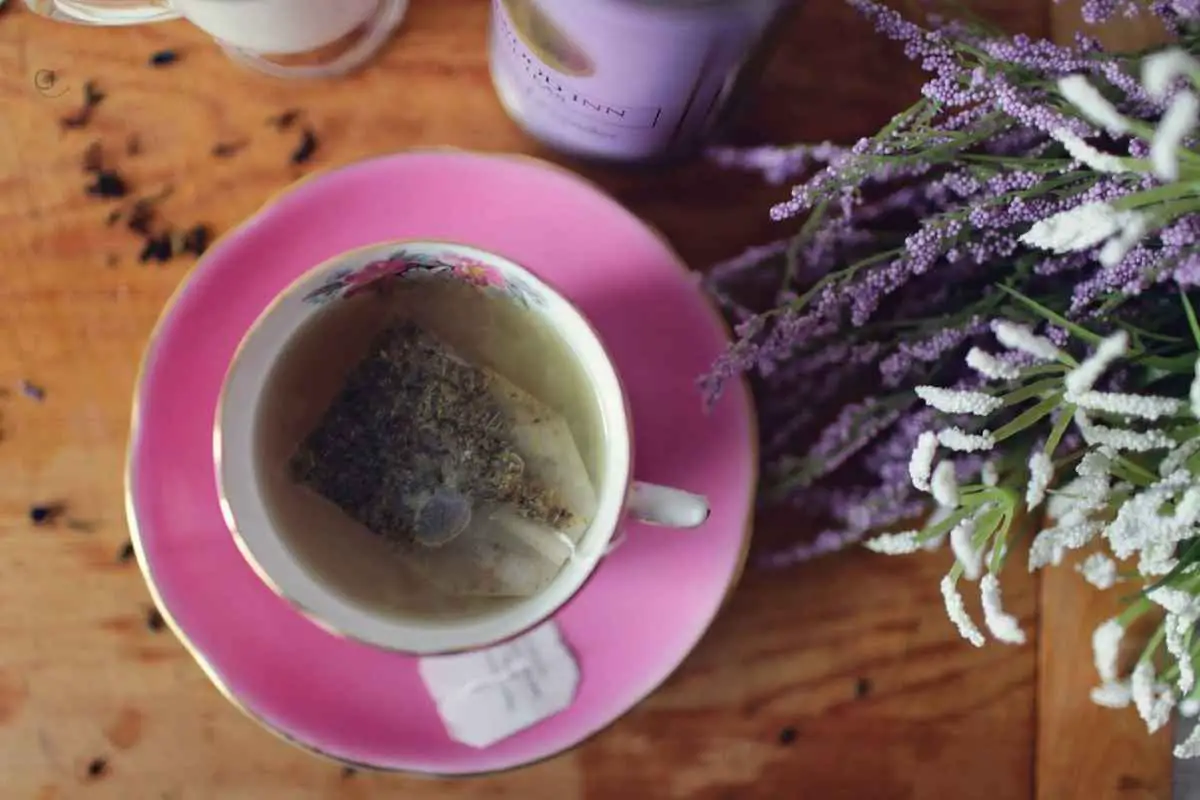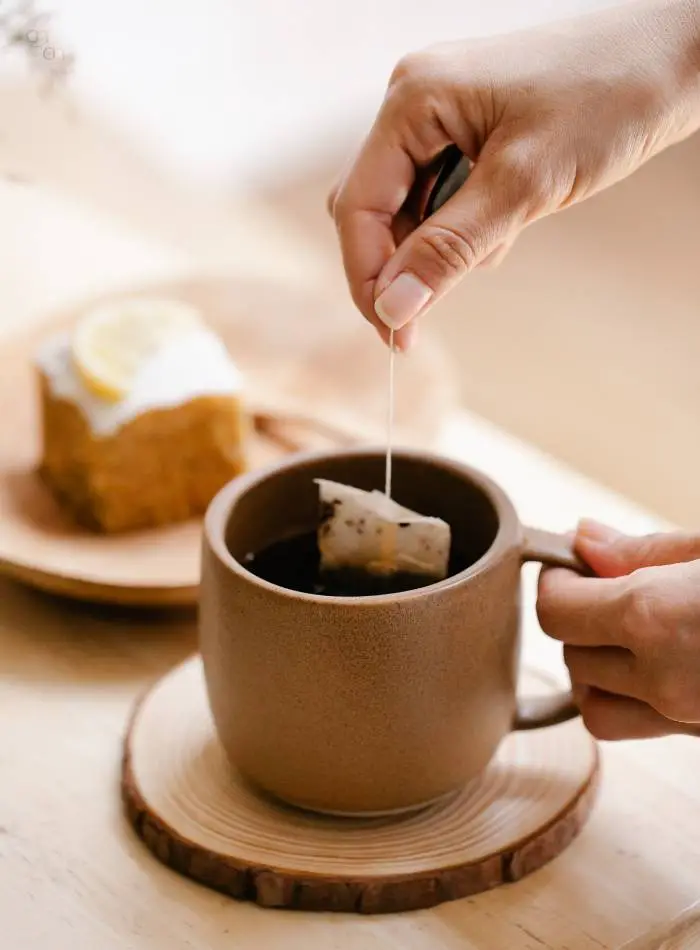How Much Water For Tea Bag

Ever wondered why your tea doesn’t taste as good as you’d like? The secret might lie in the amount of water you use for your tea bag.
Using too much water can leave you with a weak, bland cup, while too little can make it overly strong or bitter.
Finding the right balance is essential for a great brew.
Get how much water for tea bag for different types of tea bags, helping you craft a flavorful and satisfying cup each time.
Let’s get into how to brew tea like a pro!
Why Water Ratio Matters?
The ratio of water to tea plays a key role in determining the taste, strength, and overall quality of your tea.
Using too much water results in a weak, diluted flavor, while too little water can make the tea overly concentrated or bitter.
Getting the balance just right allows the tea to release its full flavor and aroma.
Different teas, such as black, green, or herbal, require specific water amounts to bring out their unique characteristics.
By adjusting the water-to-tea ratio, you can create a cup of tea that perfectly suits your taste, ensuring every brew is rich, smooth, and enjoyable. The right water ratio is essential for the best tea experience.
How much water for tea bag:
The right amount of water for your tea bag can vary depending on the type of tea and how strong you like your brew. Here’s a guide to help you get the perfect cup:
Black Tea: Generally, use 8 oz (240 ml) of water per tea bag. This ensures the tea is strong and flavorful without being too overpowering.
Green Tea: Green tea requires a more delicate touch, so 6-8 oz (180-240 ml) of water is ideal. For a milder brew, use a little less water, but avoid using too much, as it can weaken the taste.
Herbal Tea: Herbal teas typically need about 8 oz (240 ml) of water per bag to fully release their flavors. These teas tend to be less intense, so they require a bit more water.
Oolong Tea: For oolong tea, 6-8 oz (180-240 ml) of water is perfect. Oolong is more robust than green tea but less strong than black tea, making this water amount ideal to bring out its unique taste.
These are general guidelines, but feel free to adjust the water amount depending on your personal taste preferences. Longer steeping times can also enhance the flavor if you use slightly less water.
Read Next:How Lemon Ginger Tea Help You Sleep
Tips for Perfectly Brewed Tea:
Getting your tea just right goes beyond choosing the right tea bag and water. The process itself can make all the difference. Here are some key tips to help you brew the ideal cup every time:
Start with Fresh Water: Always use fresh, cold water. Reheating or reusing water can affect the taste, as it loses oxygen, which dulls the flavor. For the best results, avoid water with high mineral content or strong chlorine taste.
Use the Right Temperature: Different teas require different water temperatures.
-
- Black Tea: Boil water to 200-212°F (93-100°C).
- Green Tea: Use water at 160-180°F (71-82°C) to keep it from being bitter.
- Herbal Tea: Boiling water (212°F/100°C) works well for most herbal blends.
- Oolong Tea: Ideal water temperature is 185-205°F (85-96°C).
Steep for the Right Time:
-
- Black Tea: Steep for 3-5 minutes for a full-bodied flavor.
- Green Tea: Steep for 2-3 minutes to avoid a bitter taste.
- Herbal Tea: Steep for 5-7 minutes to bring out all the herbal notes.
- Oolong Tea: Steep for 3-5 minutes for a balanced brew.
Adjust Tea-to-Water Ratio: If you prefer a stronger cup, add more tea leaves or bags. For a lighter brew, use less tea or more water. Experiment to find your perfect balance.
Don’t Over-Steep: Leaving your tea bag or leaves in too long can make your tea bitter. Always set a timer to avoid over-steeping.
Use a Proper Teapot or Infuser: Choose a teapot or infuser that gives the leaves plenty of room to expand. This ensures the tea releases its full flavor.
Let It Rest: After steeping, let your tea sit for a minute or two before drinking. This helps the flavors settle and gives you a smoother cup.
Enhance the Flavor: Add a slice of lemon, a spoon of honey, or a splash of milk to suit your taste. These additions can complement the natural flavors of your tea.
Find your brew a cup of tea that’s full of flavor, perfectly brewed to your liking. Enjoy!
Common Mistakes to Avoid:
Common Mistakes to Avoid When Brewing Tea
Incorrect Water Temperature: Different teas require specific water temperatures to bring out their best flavors. Boiling water can burn delicate teas like green tea, while not hot enough water can fail to extract the full strength of black tea. Adjust the water temperature to suit the tea you’re brewing for a balanced cup.
Steeping for Too Long or Too Short: Over-steeping can lead to bitterness, particularly in black or green tea. Conversely, under-steeping results in a weak, flavorless brew. Stick to recommended steeping times and adjust based on your personal taste.
Using Too Many or Too Few Tea Bags: Using multiple tea bags in one cup or too few can make your tea overly strong or too mild. One tea bag per cup (or the appropriate amount of loose tea) is the ideal ratio for balanced flavor.
Using Stale or Reheated Water: Using water that has been previously boiled or sitting for a while can dull the flavor of your tea. Always use fresh, cold water to preserve its oxygen content, which helps bring out the full flavor profile of the tea.
Skipping the Preheating Step: Brewing tea in a cold teapot or cup can cause temperature fluctuations that affect the steeping process. Preheat your teapot or cup with hot water before brewing to maintain a consistent temperature and ensure optimal flavor extraction.
Overcrowding the Tea Bag or Infuser: If your tea bag or infuser is too packed, the leaves won’t have enough space to expand fully, which affects the infusion. Leave enough room for the leaves to unfurl and release their full flavor for a richer, more aromatic tea.
Take Away:
- The secret to brewing a perfect cup of tea is finding the right balance between water and tea.
- Using too much water can weaken the flavor, while too little can make your tea overly strong or bitter. Generally, 8 oz (240 ml) of water per tea bag works well for most teas.
- However, more delicate teas like green or oolong may need slightly less water to preserve their subtle flavors.
- By adjusting the amount of water and steeping time, you can create a cup of tea that’s perfectly suited to your taste.
Call to Action:
- Looking for more tea tips and brewing ideas?
- Subscribe to our newsletter for the latest updates and follow us on Pinterest for daily inspiration and tea-related content!
FAQs | how much water for tea bag
Q. can you make tea with ice water?
Yes, you can make tea with ice water, but it will take longer to brew. Cold brewing results in a smoother, less bitter flavor and is perfect for teas like green or herbal. However, be prepared to wait several hours for the tea to fully infuse.
Q. How much water should I use for one tea bag?
A general rule is 8 oz (240 ml) of water per tea bag. This ensures a balanced flavor, not too strong or too weak. For delicate teas like green tea, you may want to use slightly less water to avoid bitterness.
Q. Can you reuse a tea bag?
You can reuse a tea bag, but the second brew will likely be weaker. If you’re brewing a strong tea like black or oolong, reusing it once is fine. For more delicate teas, it’s better to use a fresh bag for the best flavor.
Q. What’s the best water temperature for green tea?
Green tea is best brewed at 160-180°F (71-82°C). Using boiling water can make the tea taste bitter, so aim for slightly cooler water to preserve the delicate flavor of green tea.
q. How long should I steep herbal tea?
Herbal teas typically need 5-7 minutes to steep properly, allowing the herbs to release their full flavor. For a lighter taste, you can steep it for a shorter time.
Q. Is it okay to add milk to green tea?
While it’s not traditional, adding milk to green tea is a personal choice. It can soften the flavor, but it may also mask some of the tea’s subtle notes. If you enjoy it, feel free to add milk!






